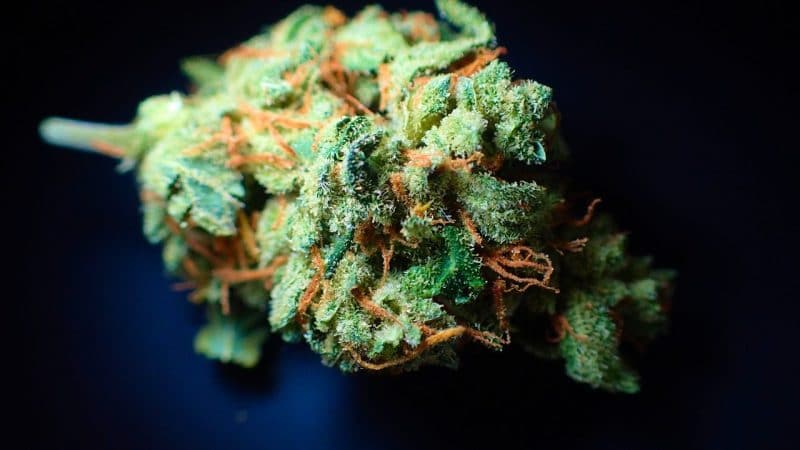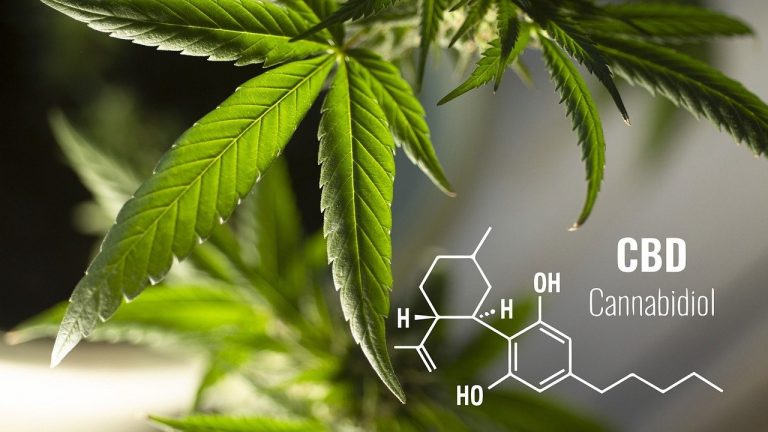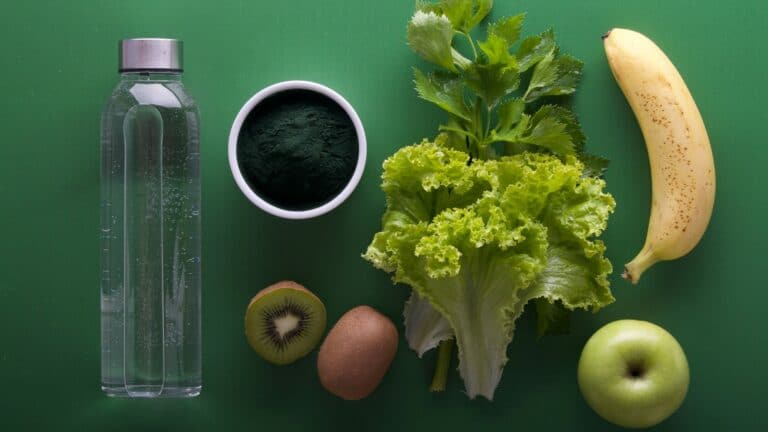CBD vs THC Showdown: Is There a True Winner?

These two cannabinoids may be the best thing that has happened to humanity! At least, that’s the impression we get from the media. Scientists and consumers are singing praises for both cannabis compounds, but when CBD vs THC relationship is discussed, the latter usually loses the battle. Is this fair, or is it just poor marketing?
As usual, the truth is somewhere in between. We are starting from their molecular structure, then go through Indica vs Sativa discussion and their psychoactive properties (or lack of them), all the way to the final products and their market value. To show you the real difference between CBD and THC, we have decided to compare them on nearly all levels.
So are you ready for the ride? It’s going to be a long one, but at least you will find all the information you could possibly need about the world-renowned cannabinoids in one place.
Good Godchildren
Have you ever heard of Dr. Raphael Mechoulam? The Godfather of Cannabis, as he is oftentimes called? The professor of Medicinal Chemistry at the Hebrew University of Jerusalem is still successfully researching CBD and THC. He’s been doing this for 50 years already.
Truth be told, CBD was first discovered by Roger Adams from the US and Lord Alex Todd from the UK in the 1930s. Yet, Dr. Mechoulam is the first person to successfully isolate these cannabinoids so that they become available for further research in the 1960s. The story of how he obtained the research material is quite funny, and the efforts more than paid off!
Let’s see now what they are made of.
THC vs CBD Structure
What is CBD (cannabidiol) made of? What is THC (tetrahydrocannabinol) made of?
Essentially, they consist of:
- 30 atoms of hydrogen,
- 21 atoms of carbon, and
- two atoms of oxygen.
Hence, their molecular formula is the same — C21H30O2.
Even their molecular masses are close to identical. THC weighs 314.469 g/mol, while CBD has 314.464 g/mol. As a matter of fact, the only thing which is different is how the atoms are arranged, and that is what makes such a huge difference between THC and CBD.
How is this possible? Well, if you remember your chemistry lessons, both diamond and graphite are pure carbon, but their atoms have distinctive connections. This is not to say, though, that one of these cannabis compounds is extremely valuable, and the other has low value. In that respect, we’d call them both diamonds. They are absolutely priceless.
Some other fun facts while discussing CBD and THC together are:
- THC has a cyclic ring, but CBD has a hydroxyl group. That’s why they have different effects.
- Neither of them is very soluble in water. However, they show good solubility in organic solvents, especially alcohol.
- THC molecules can bind to plastic and glass. In practice, this means it is usually stored in solvents.
- Both cannabinoids can be altered with high temperatures, which adds to the vaping vs smoking debate.
CBD vs THC Cannabis Species
Here comes the tricky part (one of many). What cannabis species are rich in CBD and low in THC, and which ones are the opposite? Here’s a brief explanation.
The cannabis plant has three subtypes:
- Cannabis Sativa, which consists of:
- (industrial) hemp (rich in CBD and has only traces of THC (up to 0.3%))
- marijuana (weed)
- Cannabis Indica, aka marijuana (rich in CBD, as well as THC)
- Cannabis Ruderalis (low THC, high CBD levels).
Regardless of which plant we are talking about, we get CBD with THC from the resin glands of the flower, i.e., trichomes.
In addition, nowadays, there are so many weed strains with specific ratios. There is even an ongoing debate whether today there is such a thing as a pure Indica or Sativa, as so many hybrids have been constructed.
How Do They Affect Us?
Cannabidiol and tetrahydrocannabinol are not alone in the resins. There are over 100 phytocannabinoids which naturally occur in cannabis plants. Nevertheless, THC and CBD seem to provide the greatest health benefits and are the most researched. Hence all the hype about them.
We know exactly what they do thanks to the discovery of our endocannabinoid system (ECS).
Only when the system of endocannabinoids was officially discovered, which spreads throughout mammals’ body (brain included), did the scientists become able to explain just how cannabinoids affect our body (and mind).
The ECS consists of cannabinoid receptors (rings a bell?) The most abundant are CB1 (mostly found in our brain), followed by CB2 (responsible for the immune system). Both THC and CBD interact with them, but in different ways:
- THC directly triggers the receptor. This is the reason why THC gets us “high.” The brain is greatly affected when THC connection with CB1 is established.
- CBD interacts with ECS indirectly. It doesn’t modify the receptors directly but influences the enzymes which carry the message for receptors. This way, it influences the receptors’ ability to bind to cannabinoids. Hence, CBD has a bigger, wholesome effect on ECS.
To this end, in this CBD versus THC battle, CBD is the clear winner. It has the ability to influence the bigger part of our endocannabinoid system.
Take notice, though, that even though we are quite familiar with ECS today, CBD receptors are in control of our whole body, and enzymes can vary due to genetics. For this reason, we still don’t have many FDA-approved cannabis products. Usually, what you do is a self-experiment, and no one guarantees the exact effect.
CBD High vs THC High
Long story short, this is how it goes:
- THC is psychotropic, i.e., it gives you that euphoric, pleasant, “high” feeling. THC directly influences your brain, consequently impairing our decision-making and altering our senses.
- CBD is non-psychotropic. You cannot get “high,” even if you take large doses. You would feel dizzy and sick, but this is not that intoxicating feeling. CBD has a powerful, uplifting effect as it affects our ECS immensely, but the sensation is not to be confused with the one caused by THC.
Therefore, THC is intoxicating, whereas CBD isn’t, no matter what may seem to you.
CBD Oil vs THC Oil
Which one is better? It’s really hard to say because they treat different conditions. But let’s at least take a look at their content.
- CBD oil is also called hemp oil, as it is usually derived from hemp plants containing less than 0.3% THC. However, it should not be confused with hemp seed oil.
CBD oil can be pure or full-spectrum. As the name suggests, the first version contains pure CBD, without any THC. In such form, CBD is sold as the only FDA-approved cannabis drug — Epidiolex. Does CBD oil contain THC? Yes, full-spectrum CBD oil contains THC, other cannabinoids, and terpenes.
- THC oil, hashish oil, cannabis oil, marijuana oil, RSO oil — all these terms are used to refer to THC oil, though cannabis/marijuana oil can be used to denote full-spectrum CBD oil too. Depending on the strain which you are using for extraction, you will have the corresponding THC percentage.
Both oils serve different purposes. One is non-psychoactive, and the other gets you “high.” Which one is healthier? That depends on what your body needs. Some conditions are best treated with CBD oil with THC, others with pure oil.
Which one is easier to make? In both cases, extracting pure CBD or pure THC are extremely complicated and expensive processes. Nevertheless, there are easy ways to make CBD oil at home or your own hash oil.
Therefore, there is no real winner here.
CBD vs THC for Pain
When you learn that chronic pain is the number one reason why Americans apply for medical marijuana benefits, the importance of cannabis is obvious.
CBD for Pain
CBD’s pain-relieving features are mostly attributed to its anti-inflammatory properties. Research shows it helps with arthritis pain, cancer pain, migraine, surgical incision pain, Alzheimer’s, fibromyalgia, multiple sclerosis, and so on. Also, it is reported that it can prevent nerve damage, which also reduces painful reactions.
CBD oil can be taken in many distinctive forms to treat pain, and CBD edibles are one of the most popular ways for many people.
Whereas lots of studies support the idea that CBD helps with non-cancer pain, THC benefits are sometimes disputed.
THC for Pain
According to one study, THC is useful in dealing with chronic nerve pain. In addition, a different study on mice showed that THC is helpful in reducing pain from chemotherapy.
What is most important when debating cannabis for pain is the fact that the cannabinoids best work together. On average, the best results are obtained with the combination of the two, as THC boosts CBD’s pain management properties. In short, they’re a perfect match!
The Perfect Match
Dr. Bearman, the renowned cannabis expert, suggests equal CBD-THC ratio as the best dosage. The ideal starting dose would be 15 mg of CBD and 15 mg of THC. According to Dr.Bearman, this should get rid of chronic pain without making a person “high.” What is more, anecdotal evidence shows that Indica strains are more efficient in treating pain.
To sum up, the best results are achieved with the combination of cannabidiol and tetrahydrocannabinol.
CBD vs THC for Sleep
The above THC and CBD effects on pain are also very helpful in dealing with insomnia. A number of conditions and illnesses followed by chronic pain prevent patients from having a regular, healthy sleep. This can be solved with cannabinoids, and here is some detailed information on how these two affect sleep.
CBD for Sleep
According to research, CBD oil for sleep works best with people who have some kind of sleep disorder. Healthy, well-rested individuals with regular sleeping patterns don’t seem to experience big changes. High CBD, low THC strains are recommendable if you wish to put an end to nightmares or vivid dreams. Too much CBD, though, could cause insomnia, so tread carefully.
Depending on the preference and the delivery speed, CBD can be taken in the form of edibles, pills, oils, topicals, patches, or a joint.
THC for Sleep
THC sleep success rates are very high. It is very helpful in treating sleep apnea. Interestingly, Dronabinol, which is a synthetic THC drug, reduced apnea symptoms in 33% of the participants in one study. The medicine is normally used by cancer patients for treating nausea and vomiting.
Seniors don’t argue about CBD vs THC for sleep. Most of them use marijuana, while 42% choose hemp CBD.
On the other hand, too frequent use of marijuana can lead to CUD (cannabis withdrawal syndrome). Its regular side effect is nothing else but insomnia.
So which one is better? Once again, it’s a draw.
The study on 2,000 subjects revealed that the 1:1 ratio is desirable for sleep improvement. A Canadian study including 104 HIV-positive adults also got positive feedback from two-thirds of respondents.
THC or CBD for Anxiety Issues?
Depression and anxiety are usually mentioned when medical marijuana is being discussed. Indeed, cannabis is used very often. Here’s how.
CBD for Anxiety
In a study involving a simulated public speaking test, which is a typical stress and anxiety-inducing situation, 57 adult males were tested with CBD. The group which received 300 mg of CBD showed the best results, compared to other subjects who got 150 mg or 600 mg. How exactly CBD and THC oil work is a mystery, but as for CBD, it is suggested that CBD reduces anxiety by affecting limbic and paralimbic brain areas.
THC for Anxiety
THC is not even half as popular as CBD when it comes to treating anxiety, due to its psycho-altering properties. THC oil can increase anxiety levels, and extreme care is needed if one is smoking marijuana. Pure THC can lower anxiety only in small doses.
In contrast, pure CBD has better results. Prolonged use of medical marijuana for anxiety could lead to cannabis dependence. Therefore, pure CBD is a better choice.
To sum up, CBD clearly takes the lead here.
CBD vs THC for Cancer
Cancer is one of the most intriguing topics when it comes to cannabinoids. There are plenty of testimonials, but only a few human studies to confirm once and for all how these two are beneficial for cancer patients. Here’s a brief summary.
CBD for Cancer
Scientific research and personal experiences about CBD confirm it has anti-proliferative qualities, i.e., it can kill cancer cells. Also, an animal study with melanoma cancer showed CBD is stopping cancer growth and provides a better quality of life.
By the way, THC and CBD oil for cancer don’t exist per se, or at least not until FDA approves of a product with such a name. At the moment, no one is allowed to advertise cannabis oil strictly produced for treating cancer.
According to research, CBD reduces nausea and vomiting during chemotherapy, though it seems that CBD has acted more as an indirect agonist on the 5-HT1A autoreceptor than as a CB1 influence.
THC for Cancer
What is the difference between CBD and THC in their battle against this deadly disease? The synthetically produced versions of THC are FDA-approved cancer medicines:
- Dronabinol (Marinol®)
- Nabilone (Cesamet®).
Both are used to treat nausea, vomiting, and loss of appetite (lowering weight) in cancer patients. However, there are no CBD medicines, synthetic or natural, that are approved for dealing with cancer.
There is Nabiximols, though, a THC-CBD mixture mouth spray, which is approved in the UK for treating cancer and MS (multiple sclerosis) related pains. It is still being researched for the US market.
In the case of CBD vs THC vs lung cancer, we must say that smoking marijuana is not recommended as it can worsen the condition. In this case, neither of these seems to be powerful enough to mitigate the negative effects of smoking.
RSO oil (Rick Simpson’s oil) has to be mentioned here. According to Mr. Simpson, he cured himself of skin cancer by using potent THC oil he prepared on his own. It has much more THC than CBD. Numerous testimonials all over the internet abound claiming what is THC capable of in cancer cases.
Furthermore, there is a study in which THC was successful at killing cancer cells in mice and minimizing tumor.
All things considered, we would say that both cannabinoids should be used. An optimal combination of both is the best, but what ratio is needed is the most challenging to determine, as different cancers called for different quantities.
How Do Side Effects Compare?
There is hardly anything perfect in this world. THC-free CBD oil is proclaimed safe to consume by the WHO, but that doesn’t mean it is as safe as water, for example.
CBD Side Effects
They normally occur if one takes more CBD than is supposed to. For this reason, it is always advised to start with the smallest doses. The list of side effects is lengthy, but the most common symptoms are the following:
- Dry mouth
- Nausea
- Diarrhea
- Dizziness
- Sleepiness
- Interaction with medicines.
THC Side Effects
What is the difference between THC and CBD regarding adverse effects? Well, getting “high” isn’t everyone’s preference, so that’s the basic one. Among other THC side effects are:
- Dry mouth
- Red eyes
- Memory impairment
- Slow response times
- Bad coordination
- Interaction with medicines.
Once again, too much of THC will most likely trigger these.
For the final verdict, let us say it is easier to have issues with CUD if one is consuming THC-rich cannabis products. THC vs CBD oil dilemmas also revolve around how each person reacts to it. As a matter of fact, one can even be allergic to cannabis(!), in which case neither is healthy.
The winner: CBD, for the most part.
Which One Is Legal?
We all know who’s the winner here, so we won’t beat around the bush. Hemp-derived CBD is legal on the federal level (but beware of state laws!). At present, legalization of THC seems far away, despite all the efforts. For example, one more state has recently allowed for recreational marijuana (Illinois).
Eleven states have legalized cannabis, while 33 are approving medical cannabis. Even so, there are strict rules and regulations about which conditions can be treated with CBD or THC.
What About Drug Tests?
Technically, CBD products should not mark you positive on a drug test. As usual, theory and practice differ.
As for THC, there’s no doubt about it. After all, drug tests for marijuana are carried out to detect the presence of THC in your system. Yet, even pure CBD oil could trigger a positive result. How is this possible?
First of all, not all CBD products are of uniform quality. A plethora of those labeled as hemp-derived could be mixing CBD and THC. Secondly, do you even know just how long does marijuana stay in your system? Some tests are so sensitive that they can trace the joint you smoked six months ago.
THC is stored in the fat, whereas CBD is metabolized much more quickly. If you use CBD in moderation, the cannabinoid could remain in your body for ten days.
That’s right. In this game, tetrahydrocannabinol clearly loses.
CBD vs THC: Money Matters
Now it’s time to take a good look at the industries. What do the statistics say about the CBD industry, and how THC industry fares?
CBD Industry
To say that the CBD industry is doing well would be an understatement. The world has fallen in love with non-psychotic, medically beneficial effects of CBD. This clearly translates into sales, which are expected to reach $1.8 billion by 2022. US sales in 2018 showed an increase of 57%.
CBD vs THC differences are noticeable in the pet industry. Hemp-derived pet products also reached $13 million in sales in 2017. Pretty impressive, right?
THC Industry
THC industry — does that even exist? Perhaps it’s due to its bad reputation, which used to be taken for granted for centuries, that the states don’t really boast about THC revenues. It is usually represented altogether with CBD as recreational marijuana, or, in some cases, illegal marijuana.
Marinol costs $693 in the US, and Cesamet is about $2,056, which is quite costly and hardly popular.
What’s the difference between CBD and THC regarding profits? CBD seems to have larger revenues. At the moment, the vaping crisis and the rumors that THC could be to blame are causing a drop in cannabis stocks. Needless to say, THC sales are also decreasing.
Therefore, CBD wins this round.
Conclusion
We have compared the most popular cannabinoids in the world in several respects. Sometimes THC seemed to take the lead, but it is CBD that won the whole battle.
However, CBD vs THC is not a black-and-white duality. Far from it. CBD alleviates the negative effects of THC, while THC boosts CBD’s positive qualities. Their synergy is absolutely wonderful.
The fact still remains that if you are thinking about using cannabis in any way, you should see what works best for yourself. Consulting a doctor is a must if you are taking any medications or suffering from a certain condition. Also, forget about the difference between CBD and THC your friend or relative enjoyed or had issues with. It’s up to you to discover what your ECS reacts to best.





